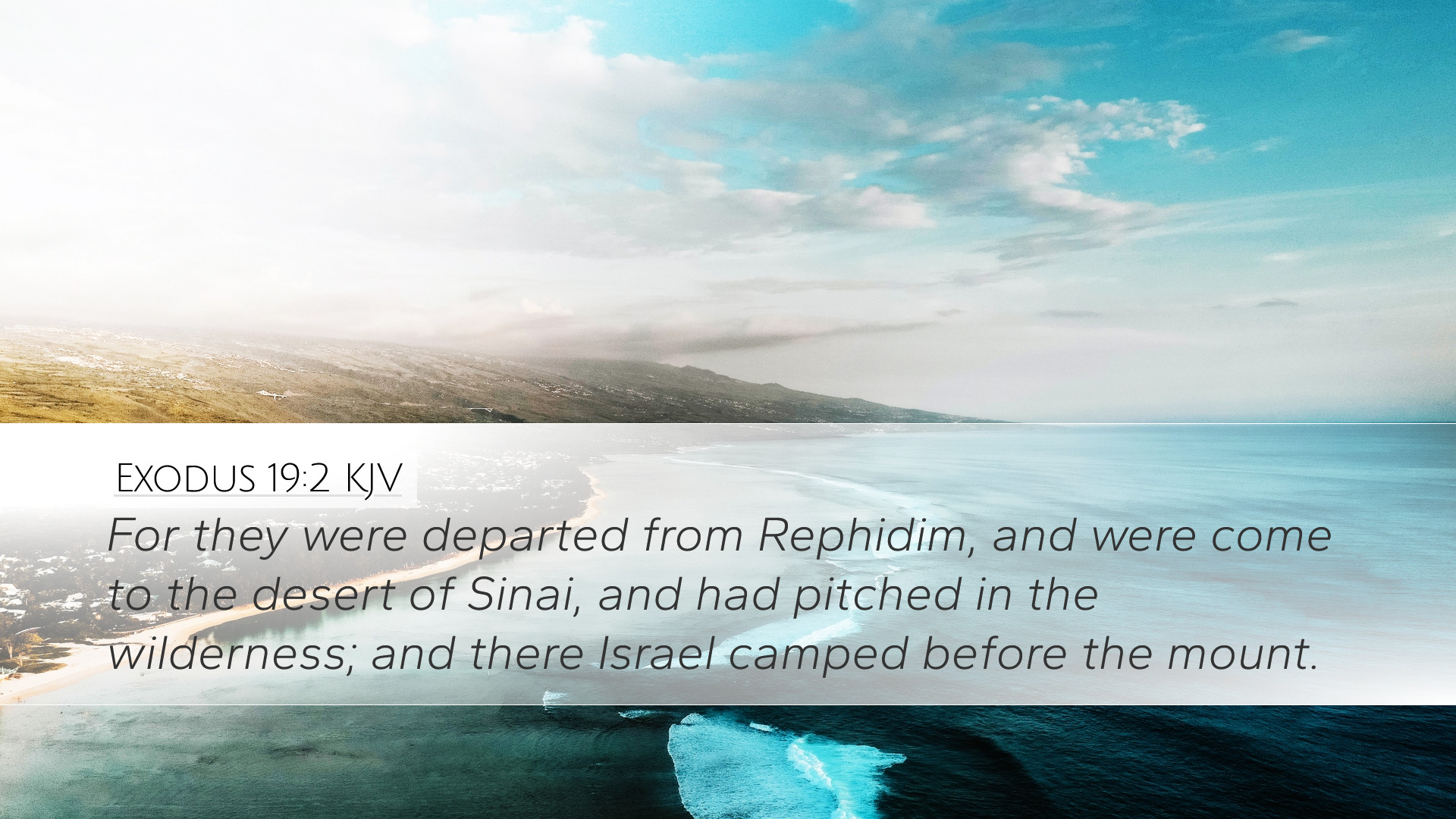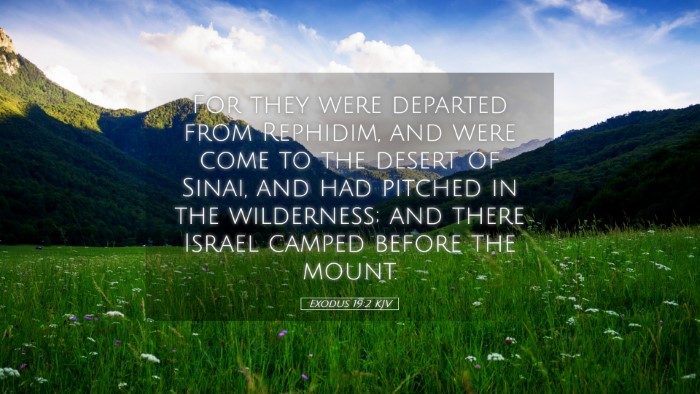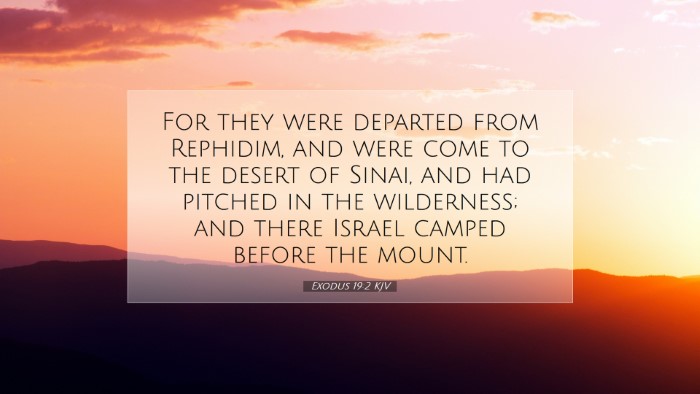Commentary on Exodus 19:2
Exodus 19:2 (KJV): "For they were departed from Rephidim, and were come to the desert of Sinai, and had pitched in the wilderness; and there Israel camped before the mount."
Introduction
This verse marks a significant moment in the narrative of the Israelites' journey from Egypt towards the Promised Land, specifically their encampment at the foot of Mount Sinai. Here, we explore the multi-faceted implications of this scripture as derived from various public domain commentaries, focusing on its historical, spiritual, and theological dimensions.
Historical Context
According to Matthew Henry, the location of this encampment was critical to the unfolding of God’s covenant relationship with Israel. This moment is set against the backdrop of their deliverance from slavery, showcasing a transition from oppression to a unique status as God’s chosen people.
Albert Barnes emphasizes the geographical significance of Sinai. The wilderness of Sinai served not only as a physical barrier to enter the Promised Land but also as a divine classroom where the Israelites would learn about God's laws and covenant. The mention of 'Rephidim' indicates a journey marked by trials, including the profound need for faith and reliance on God’s provisions in times of need.
Theological Significance
In this encounter, the Israelites are not merely camping; they are being prepared for a divine revelation. Adam Clarke remarks that this moment anticipates the receiving of the Ten Commandments, which would define Israel's identity as a nation set apart for God. The holiness of Sinai is a precursor to the holiness that the people are called to embody.
Matthew Henry also draws our attention to the reception of the law. The camp at Sinai represents a critical juncture where God would establish a formal covenant, enabling Israel to understand their unique role in God’s redemptive plan. Here, at the foot of this mountain, the people are summoned to encounter the divine, encapsulating the gravity of divine law and relationship.
Spiritual Reflections
The journey to Sinai embodies the believer’s own pilgrimage of faith. Albert Barnes suggests that just like Israel's journey through the desert and their eventual stop before the mountain, believers today must also navigate through moments of testing and preparation before they can fully embrace God's call on their lives.
Moreover, the wilderness symbolizes spiritual preparation. Here, God strips away their previous identity as slaves, calling them to embrace their new identity as His people. Adam Clarke reflects on this transformational process, underscoring how God often leads His people into places of solitude and challenge to refine their faith and devotion.
Application for Believers
How can today's believers apply the insights from Exodus 19:2? The text invites us into a period of self-reflection and spiritual readiness. Matthew Henry and Albert Barnes both articulate that believers, like the Israelites, are often called to a 'desert experience' where they learn dependence on God and prepare for His directives.
- Recognizing God's Sovereignty: Just as Israel was led to Sinai, believers should trust in God's divine plan, acknowledging His guidance through life’s uncertainties.
- Seeking Holiness: The camp at Sinai calls believers to pursue holiness and righteousness, echoing God’s call to be set apart for His purposes.
- Community Formation: The gathering of Israel in the wilderness underlines the importance of community in the faith journey, encouraging believers to cultivate a deep sense of belonging and mutual support among fellow believers.
The Call to Covenant
The encampment at Sinai symbolizes the call to covenant, which is an essential theme throughout the Bible. Clarke notes that the covenant not only defines the relationship between God and His people but also serves as a powerful reminder of God's faithfulness amidst human unfaithfulness.
Through the covenant, God extends an invitation to a profound, relational dynamic that requires commitment and faithfulness from His people. The verse invites pastors and leaders to reflect on their guidance within their communities, encouraging believers to understand their own identity as participants in God’s covenantal promise.
Conclusion
Exodus 19:2 serves as a foundational moment illustrating the transition from oppression to redemption, and from wandering to purpose. The insights drawn from historical, theological, and spiritual reflections provide pastors, students, theologians, and Bible scholars with a comprehensive understanding of its significance. The journey to Sinai is not merely a physical pathway but a transformative experience beckoning God's people into a deeper relationship with Him.
As we ponder this significant verse, let us embrace the call to holiness, the reality of our covenant with God, and the continual journey toward His kingdom, equipped by His Word and Spirit.


